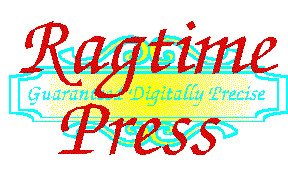
 |
|
Midi |
Playing midi files with your browser
The MIDI format is one of the most compact methods to transmit music. This is because the format contains no sound, just what notes to hit. You need the equivalent of a programmable musical instrument at your end to play a MIDI file.
Fortunately, most computers these days with sound cards already have everything they need to play MIDI files. I'll describe how I activated MIDI capability on my machine with a few different browsers running under Microsoft Windows. For other systems and/or more in depth coverage of MIDI, see the references below.
The Microsoft Internet Explorer v1.0 that is a part of the Microsoft Plus package for Windows 95 is shipped to automatically recognize and play MIDI files.
Microsoft Internet Explorer v2.0 for Windows 95 not only automatically recognizes and plays MIDI files, it can load and play them as background sounds! It's available as a free download from Microsoft's Home Page. This site supports Microsoft's background sound extensions on it's link and music listing pages.
WebSurfer Chameleon from NetManage is shipped to automatically recognize MIDI files.
A new feature of Netscape version 2.0 is support for 3rd party inline plugins. This site looks forward to supporting plugins capable of playing MIDI files as they are received. Promising new inline MIDI plugins are available from Crescendo and also from MacZilla.
Use of external applications to play MIDI, such as mplayer, are also supported. On Netscape version 2.0, select the Options drop-down menu, then General. From the preference list, select the tab marked Helper Applications. From here on the screen is pretty much the same as in version 1.1. Select New Type, put Audio in the mime type field, and enter midi as the mime sub-type. Next, in the extensions field, enter mid, rmi which denotes MIDI file types. Finally, change the Action to Launch Application and fill in C:\WINDOWS\MPLAYER.EXE as the application to run.
A new feature of Netscape version 2 is support for JavaScript. This site supports this extension. Users of this version of Netscape will notice that our homepage rewrites itself on each invocation with a new quotation from a musical luminary. We implement this in a way that is transparent to browsers which do not support JavaScript.
On Netscape version 1.2, select the Options drop-down menu, then Preferences. From the preference list, select Helper Applications. Check through the file type/actions/extensions list, but MIDI is probably not there... that's why you're doing this. So then select New Type, put Audio in the mime type field, and enter midi as the mime sub-type. Next, in the extensions field, enter mid, rmi which denotes MIDI file types. Finally, under Action click the Launch Application button and fill in C:\WINDOWS\MPLAYER.EXE as the application to run. Now, the next time Netscape receives a file of the form filename.mid or filename.rmi, it'll automatically start up Microsoft's media player which comes with Windows and all you'll have to do is click the play button.
The NCSA Mosaic browser doesn't have a menu driven way to configure helper applications. You must edit mosaic.ini which is usually located in the c:\windows directory. As an alternative, if Mosaic does not find its ini file in the windows directory, it will look for it in its own startup directory (the place mosaic.exe loaded from).
Edit the mosaic.ini file with a text editor such as the windows notepad editor. Be sure and save an extra copy of this file in a safe place before tinkering with it. Look for the section marked [Viewers]. Add in a line in the top group like:
Note that Mosaic can only have 10 helper applications, so if TYPE0 to TYPE9 are already occupied, you'll have to replace one you don't use. At the bottom of the same section add the line:
Finally, in the section marked [Suffixes] add a line reading:
Other browsers may require that you alter mime tables in their .INI control files. You generally want to search out the mime-type table and add in Audio/midi and associate it with the .mid and .rmi file extensions. Usually there's another table that specifies the application program to be used to handle the mime-type which you can make C:\WINDOWS\MPLAYER.EXE for the one you just added. If your browser resists configuration, it's not as much fun but you can always save the MIDI files to disk and play them back with the media player off-line.
Many windows applications look into windows internal tables to determine what program to use to process a given file type. If your browser totally resists configuration of a new mime-type, as a last resort you could try and modify the internal windows table, c:\windows\win.ini. Be sure and save an extra copy of this file in a safe place before tinkering with it.
Look for the section marked [Extensions]. After making sure there isn't already a line that starts 'mid=', add the following line near the end of the section:
The version of the media player that comes with Windows 95 is only slightly enhanced. It can be invoked with switches that cause it to autmomatically begin playing when it loads and then close itself at the end of the song. To get it to do this, just change entries above reading mplayer to mplayer /play /close.
A newer and greatly enhanced version of Windows Media Player can be downloaded the the Microsoft Web Site at http://www.microsoft.com/windows/mediaplayer/en/default.asp. It can play not only midi files, but Mac aiff, mp3, and other formats as well.
The Windows Media Player, as well as the Internet Explorer version that comes with Windows 98, can play midi files, and almost any other audio format, without modification. But you might want to just make sure you update both to current versions from the Microsoft web site.
![]() Return to
Ragtime Press home
page
Return to
Ragtime Press home
page
Want to share configuration instructions for your browser? Send to:
ragtime@rtpress.com